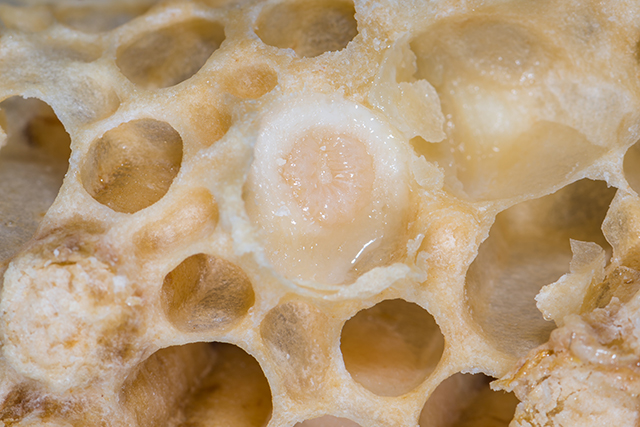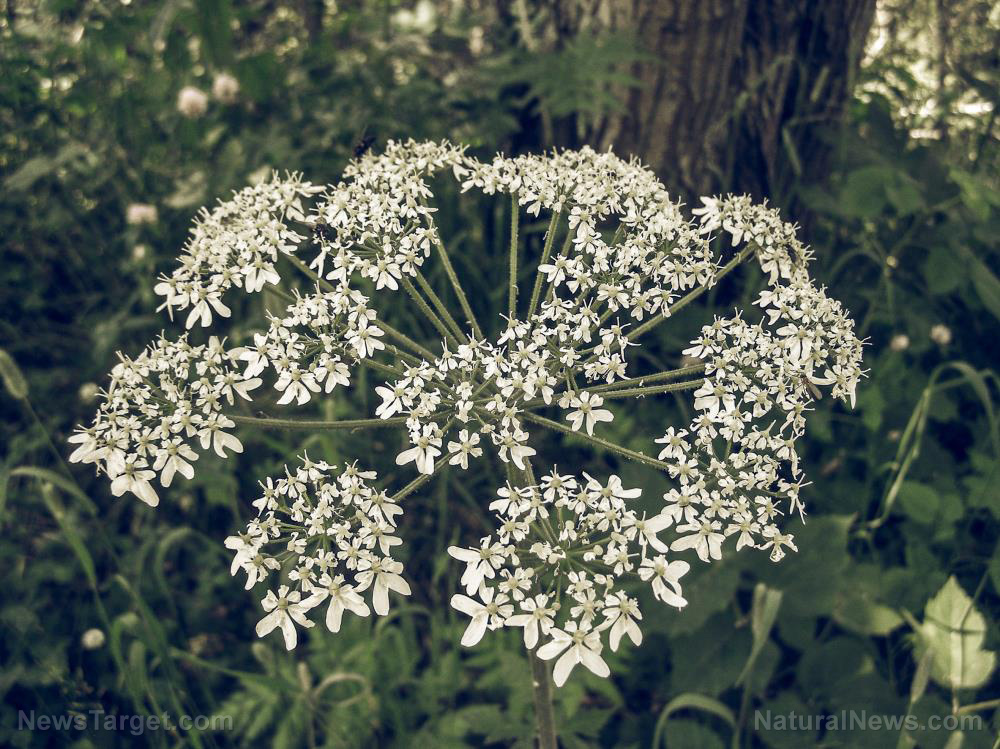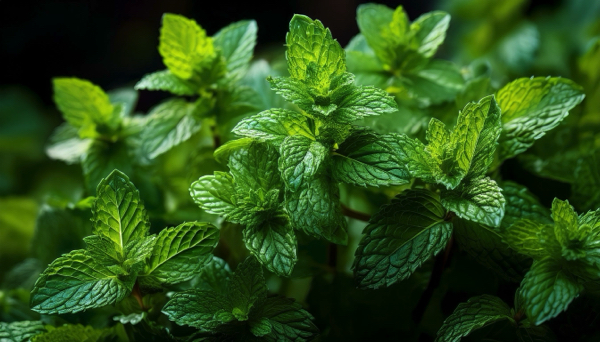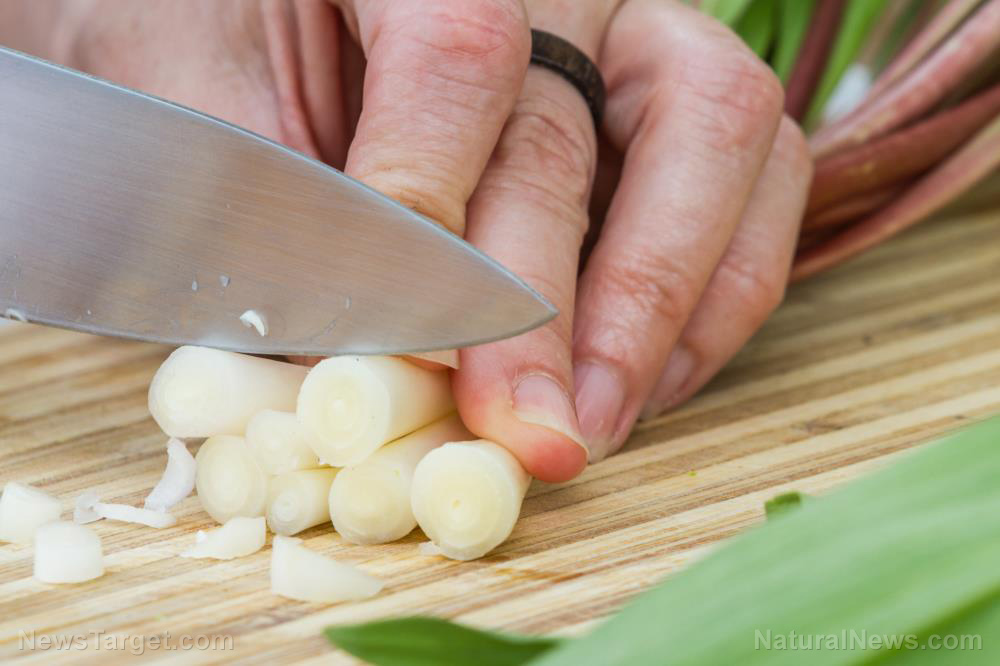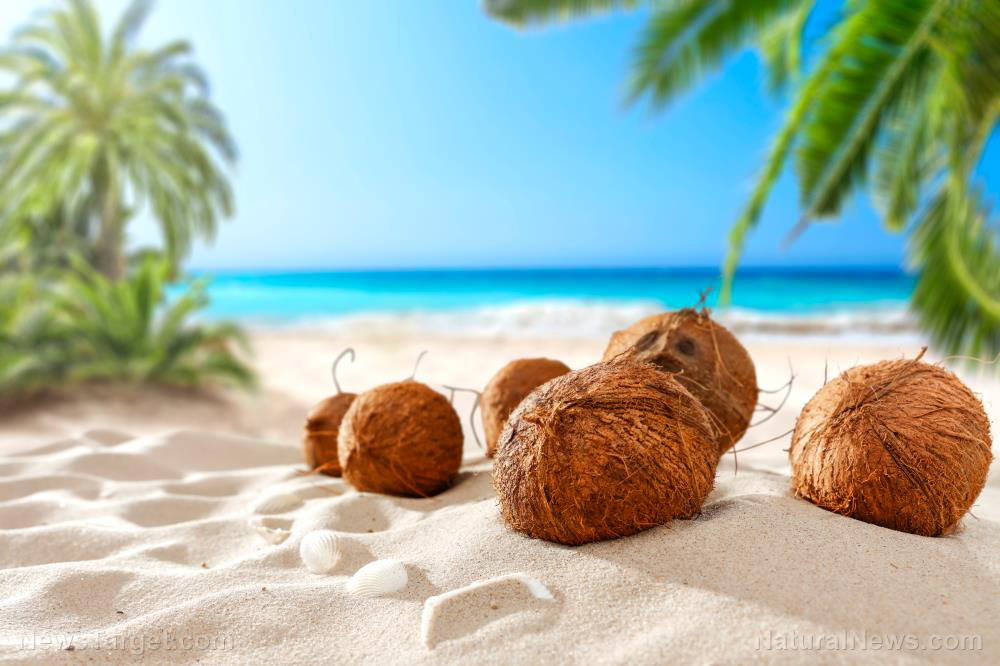How turmeric can save the aging brain from dementia and premature death
12/18/2023 / By News Editors
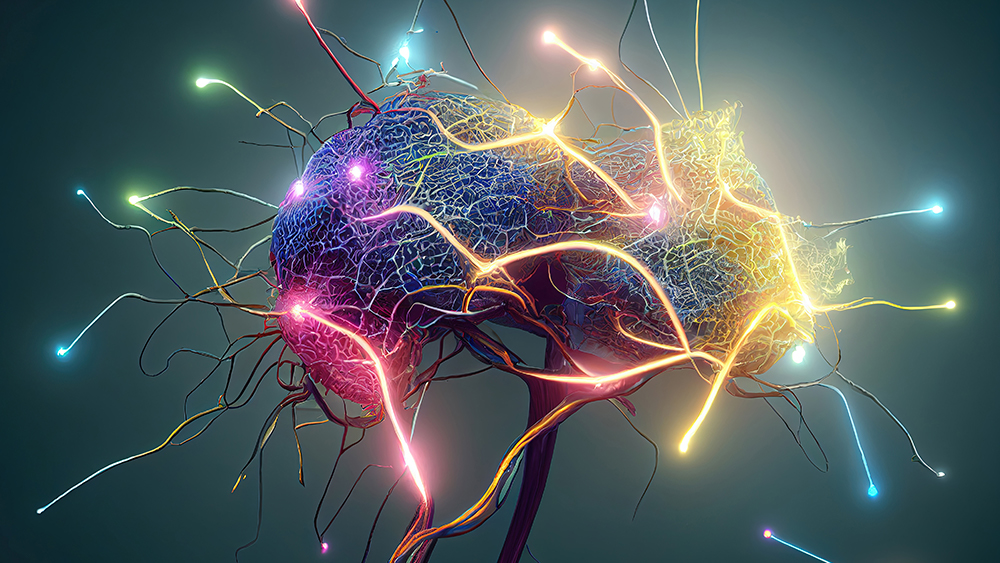
Presently, there are no pharmaceutical interventions that effectively slow, and certainly not reverse, age-related cerebrovascular pathologies linked to conditions such as Alzheimer’s disease and stroke. A new study on turmeric extract, however, indicates that a natural curative agent already exists and is close to the everyday consumer as their spice rack.
(Article by Sayer Ji republished from GreenMedInfo.com)
A promising study published in Cellular Physiology and Biochemistry titled, “Dietary Curcumin Ameliorates Aging-Related Cerebrovascular Dysfunction through the AMPK/Uncoupling Protein 2 Pathway,”[i] reveals the primary polyphenol in turmeric known as curcumin (which gives it its golden hue) may provide what the study authors describe as an “effective therapeutic strategy to reverse age-related cerebrovascular dysfunction.”
Age-related cerebrovascular dysfunction is occurring on an epidemic scale in Western countries and include, “stroke, cerebral amyloid angiopathy, cognitive decline and neurodegenerative diseases.” Presently, very few if any conventional medical interventions are capable of providing effective solutions, and none have been found to reverse underlying pathologies in conditions whose trajectories are generally characterized as ‘incurable.’ All the more reason why the new study holds so much promise in providing an evidence-based natural solution that is safe, effective, affordable and easily accessible as a familiar food ingredient.
The study was conducted using a rat model. 24-month old male rodents were given dietary curcumin (.2%), with young control rodents 6-months of age. After one month of curcumin treatment, the researchers observed a ‘remarkable restoration’ of the impaired cerebrovascular endothelium-dependent vasorelaxation (i.e. the ability of the blood vessels to naturally relax) in the aging rats. They observed three distinct ‘molecular’ ameliorative effects:
- Curcumin promoted eNOS and AMPK phosphylation: Increasing nitric oxide (NO) bioavailability enables the inner lining of the blood vessels (endothelium) to fully dilate, reducing cardiovascular risk factors such as hypertension and associated damage to the arteries. Increased 5′-AMP activated protein kinase (AMPK) activity is also associated with improved age-related endothelial function.
- Curcumin upregulated mitochondrial uncoupling protein 2 (UCP2): UCP2 plays an important role in mitochondrial homeostasis and its optimal functionaing has been associated with increased lifespan.
- Curcumin reduced Reactive Oxygen Species (ROS) production: ROS reduction is associated with decreased oxidative stress and related cellular damage.
The authors summarized their findings as follows:
“In summary, our findings provide the first evidence that chronic pharmacological AMPK/UCP2 pathway activation by curcumin treatment may be an effective therapeutic strategy to reverse age-related cerebrovascular dysfunction. Curcumin administration may represent a promising lifestyle intervention for preventing age-related cerebrovascular disturbances.”
A Massive Body of Research On Curcumin’s Brain Protective Properties
GreenMedInfo.com houses a database of over 3,000 abstracts from the National Library of Medicine on the health value of turmeric and/or curcumin in over 900 health conditions. View them all here: turmeric health benefits. Of the 280 distinct beneficial physiological actions documented within this literature, 276 of them concern the spice’s neuroprotective properties. View them here: neuroprotective properties of turmeric.
While this latest study, and most of the research on our turmeric database is preclinical, there are reports of turmeric causing significant improvements in cerebrovascular dysfunction diseases such as Alzheimer’s. In a previous article titled, “Turmeric Produces ‘Remarkable’ Rocvery iin Alzheimer’s Patients,” we reported on the ability of turmeric to produce dramatic improvement in patients suffering from behavioral and psychological symptoms of dementia.
As we discussed in the article, other documented Anti-Alzheimer’s disease mechanisms of turmeric include:
- Anti-inflammatory: Curcumin has been found to play a protective role against ?-amyloid protein associated inflammation.[11]
- Anti-oxidative: Curcumin may reduce damage via antioxidant properties.[12]
- Anti-cytotoxic: Curcumin appears to protect against the cell-damaging effects of ?-amyloid proteins.[13] [14]
- Anti-amyloidogenic: Turmeric contains a variety of compounds (curcumin, tetrahydrocurcumin, demethoxycurcumin and bisdemethoxycurcumin) which may strike to the root pathological cause of Alzheimer’s disease by preventing ?-amyloid protein formation.[15] [16] [17] [18]
- Neurorestorative: Curcuminoids appear to rescue long-term potentiation (an indication of functional memory) impaired by amyloid peptide, and may reverse physiological damage by restoring distorted neurites and disrupting existing plaques.[19] [20]
- Metal-chelating properties: Curcumin has a higher binding affinity for iron and copper rather than zinc, which may contribute to its protective effect in Alzheimer’s disease, as iron-mediated damage may play a pathological role.[21] [22]
Turmeric, of course, is not the only natural substance that has been proven to have value in neurodegenerative conditions. For those looking for additional research on food and spice-based natural alternatives that are evidence based, here are additional substances that may be of value:
- Coconut Oil: This remarkable substance contains approximately 66% medium chain triglycerides by weight, and is capable of improving symptoms of cognitive decline in those suffering from dementia by increasing brain-boosing ketone bodies, and perhaps more remarkably,within only one dose, and within only two hours.[23]
- Cocoa: A 2009 study found that cocoa procyanidins may protect against lipid peroxidation associated with neuronal cell death in a manner relevant to Alzheimer’s disease.[24]
- Sage: A 2003 study found that sage extract has therapeutic value in patients with mild to moderate Alzheimer’s disease.[25]
- Folic acid: While most of the positive research on this B vitamin has been performed on the semi-synthetic version, which may have unintended, adverse health effects, the ideal source for this B vitamin is foliage, i.e. green leafy vegetables, as only foods provide folate. Also, the entire B group of vitamins, especially including the homocysteine-modulating B6 and B12,[26] may have the most value in Alzheimer’s disease prevention and treatment.
- Resveratrol: this compound is mainly found in the Western diet in grapes, wine, peanuts and chocolate. There are 16 articles on our website indicating it has anti-Alzheimer’s properties.[27]
- Gingko biloba: is one of the few herbs proven to be at least as effective as the pharmaceutical drug Aricept in treating and improving symptoms of Alzheimer’s disease.[28] [29]
- Melissa offinalis: this herb, also known as Lemon Balm, has been found to have therapeutic effect in patients with mild to moderate Alzheimer’s disease.[30]
- Saffron: this herb compares favorably to the drug donepezil in the treatment of mild-to-moderate Alzheimer’s disease.[31]
.jpg)
Finally, it is of utmost importance to understand that turmeric contains a wide range of therapeutic biomolecules and not to get fixated on simply curcumin. There are also water and alcohol soluble components of the plant that you won’t find in extracts standardized simply to curcuminoid content. For example, a fat soluble component known as aromatic turmerone has been found to be especially important for brain regeneration, capable as it is of stimulating the regeneration of neural stem cells and their subsequent differentation into functional and fully differentiated neurons. To learn more about the remarkable healing properties of aromatic tumerone and whole turmeric read my previous article on the topic: How WHOLE Turmeric Heals The Damaged Brain.
Read more at: GreenMedInfo.com
Submit a correction >>
Tagged Under:
aging, brain function, brain health, cognitive function, curcumin, dementia, food cures, food is medicine, healing, healing food, nutrients, turmeric
This article may contain statements that reflect the opinion of the author
RECENT NEWS & ARTICLES
consumerwellness.info is a fact-based public education website published by consumerwellness.info
All content copyright © 2023 by consumerwellness.info
Contact Us with Tips or Corrections
All trademarks, registered trademarks and servicemarks mentioned on this site are the property of their respective owners.




